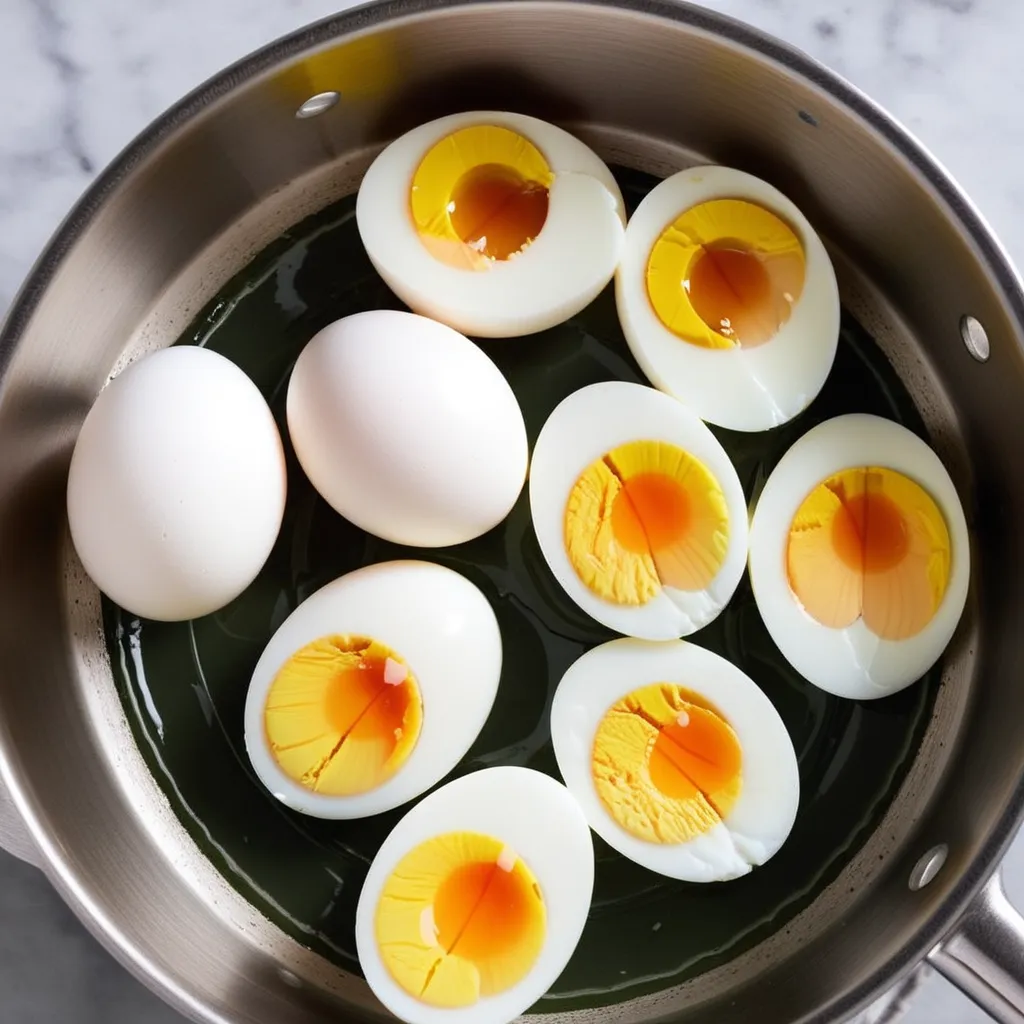how to hard boil eggs
Title: Mastering the Art of Hard-Boiling Eggs: A Foolproof Guide
Introduction:
Hey there, fellow kitchen adventurers! If you've ever found yourself in the kitchen, staring at a pot of water and wondering how to hard boil eggs perfectly every time, you're not alone. It might seem like a simple task, but achieving that elusive balance between a runny yolk and a chalky center can be a challenge. Fear not, though—I've got your back. Let's dive into the foolproof guide on how to hard boil eggs like a pro.

Choosing the Right Eggs:
Before we start boiling, let's talk eggs. Freshness matters! If possible, use eggs that are about a week old. Older eggs tend to peel more easily. Remember to take them out of the fridge about 10-15 minutes before boiling to avoid thermal shock.
The Boiling Process:
Step 1: The Prep
Begin by placing your eggs in a single layer at the bottom of a saucepan. Add enough water to cover the eggs by at least an inch. This ensures even cooking.
Step 2: The Boil
Bring the water to a rolling boil over medium-high heat. Once boiling, reduce the heat to a gentle simmer. Let the eggs simmer for 9-12 minutes, depending on your desired yolk consistency. For a creamy yolk, go for the shorter time; for a firmer yolk, aim for the higher end.
Step 3: The Ice Bath
As soon as the timer dings, transfer the eggs to an ice water bath to halt the cooking process. This step is crucial for preventing that unappetizing greenish ring around the yolk.
Peeling with Ease:
Tap, Roll, and Peel
After the ice bath, gently tap each egg on the counter to crack the shell. Roll it between your hands to loosen the shell, and then peel starting from the wider end. The cold water from the ice bath should make peeling a breeze.
Troubleshooting Tips:
Fresh Eggs Difficulty
If you have only fresh eggs on hand and peeling seems impossible, fear not. Add a teaspoon of baking soda to the boiling water. The alkaline nature of baking soda helps to separate the egg white from the membrane, making peeling easier.
No More Overcooking
Overcooked hard-boiled eggs can be dry and crumbly. To avoid this, set a timer and stick to it. Also, ensure you promptly transfer the eggs to the ice bath to stop the cooking process.

Conclusion:
And there you have it, the ultimate guide to hard boiling eggs without breaking a sweat. Whether you're preparing a batch for a quick snack or gearing up for an egg salad extravaganza, mastering the art of hard boiling eggs is a kitchen skill worth having. Give it a try, and soon you'll be the egg maestro among your friends and family. Happy boiling!